The mechanically driven parking brake system acts on the rear wheel brakes
The parking brake has a mechanical drive from the lever 1 (Fig. 1).
The middle part of the rear cable passes through the groove of the guide 7, the tension of which is adjusted by a nut screwed onto the threaded end of the front cable.
A spacer sleeve 8 is installed between the guide 7 and the adjusting nut.

There are tips at the rear ends of the cable, each of which is connected to the hook of the lever 11 of the manual brake shoe drive.
This lever is pivotally attached to the brake shoe with a pin and rests with its upper part against the groove of the spacer bar 10.
The rib of the brake shoe is installed in the opposite groove of the bar.
Replacing the rear parking brake cable
Replace the rear cable if it is excessively pulled out (inability to adjust the parking brake), mechanically damaged and lost mobility in the casing.
You will need: keys "8", "13" (two), pliers type "cobra", pliers.
Remove the brake drum (see "How to repair rear brake Niva Chevrolet").
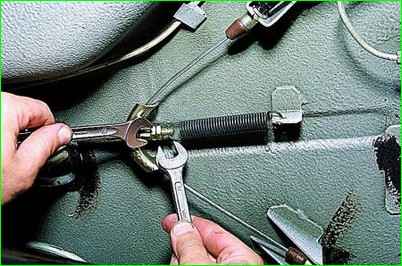
Loosen the lock nut on the end of the front cable.
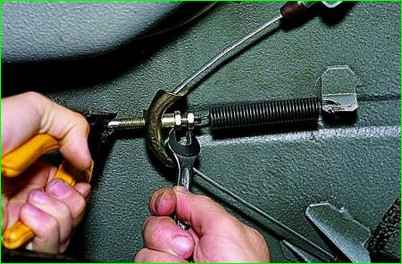
Holding the tip from turning with pliers, unscrew the lock nut and adjusting nut to the end of the tip.
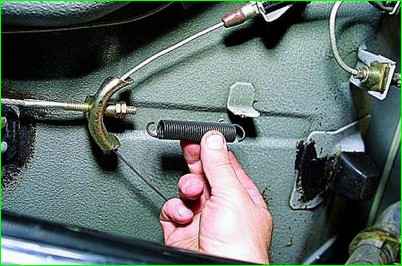
Remove the spring.
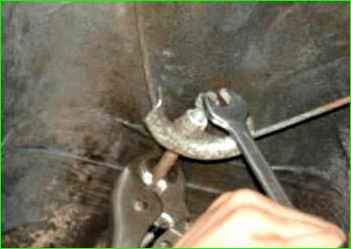
Holding the tip from turning, remove the lock nut, adjusting nut and spacer sleeve from the tip
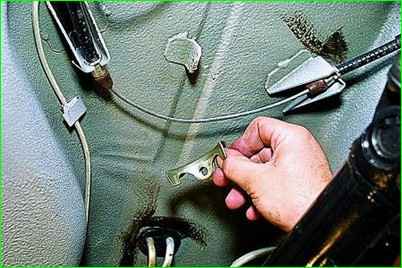
Remove the guide from the tip and disconnect it from the cable
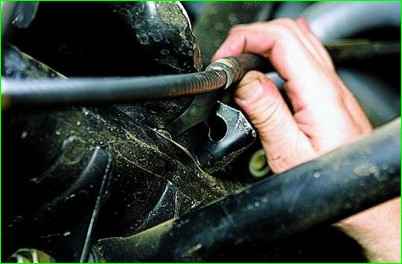
Remove the cable from the rear axle beam bracket and from the body bracket hole.
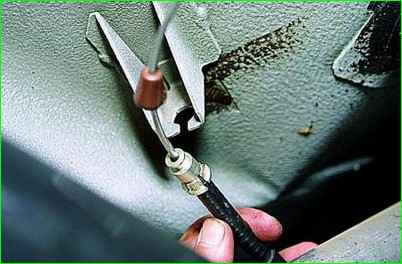
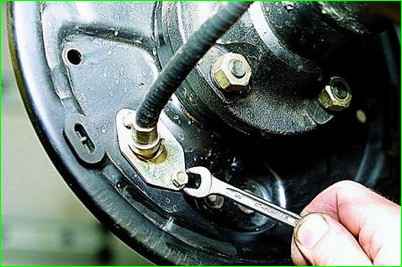
Remove the two bolts securing the cable housing holder to the brake shield.
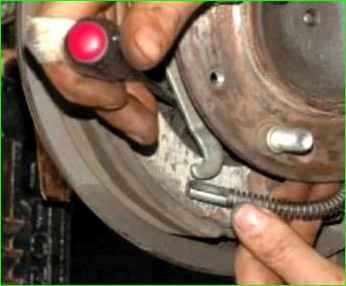
Disconnect the parking brake cable end from the drive lever
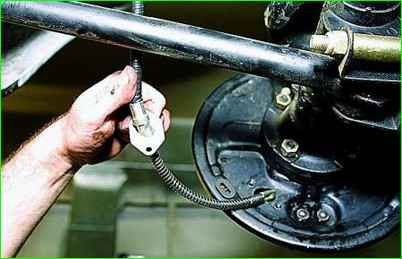
Pull the cable out of the hole in the brake shield.
Remove the right branch of the cable in the same way and remove the rear cable from the car.
Install the new cable on the car in the reverse order of removal.
Adjust the parking brake system.
Replacing the lever and front cable of the parking brake
Replace the lever assembly if the toothed sector or pawl is worn out or damaged.
Replace the front cable if it is pulled out too much (inability to adjust the parking brake) or if it is mechanically damaged.
You will need: a 13 mm wrench, pliers, and a screwdriver.
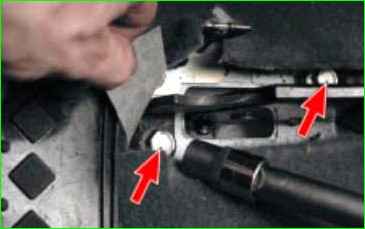
Disconnect the rear cable with the guide from the end of the front cable.
Remove the floor tunnel trim.
Unscrew the two bolts securing the lever bracket to the floor and remove the lever.
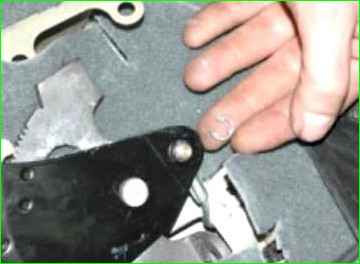
Remove the lever axle retaining ring.
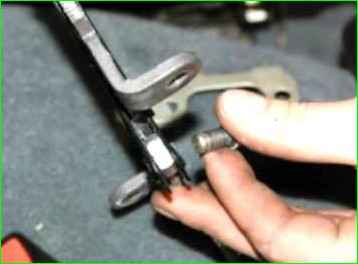
Remove the lever shaft
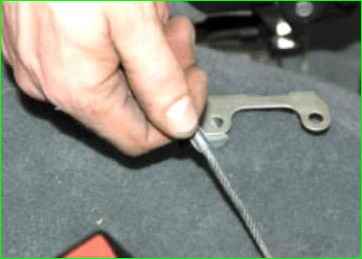
Pull the cable into the passenger compartment
Install the new cable and lever in the reverse order of removal.
Adjust parking brake system
Checking and adjusting the parking brake
The parking brake should hold the car on a 25% slope when the lever in the car is moved by 7-9 teeth (clicks) of the ratchet device.
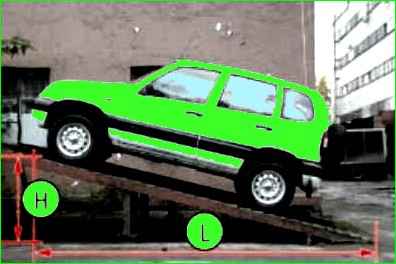
To check that the parking brake is adjusted correctly, find an overpass, loading ramp, etc. near the place where your car is parked. height H = 1.25 m with an entry length L = 5 m. This ratio corresponds to a slope of 25%.
If there is no such ramp, for a simplified check of the parking brake, place the car on a level surface.
Put the gearshift lever in neutral, fully raise the parking brake lever in the passenger compartment.
Get out of the car and try to move it.
If you succeed, you need to urgently adjust the parking brake drive.
Adjust the parking brake drive from below the car installed on a lift or inspection pit.
You will need: two 12-mm wrenches, cobra-type pliers or combination pliers.
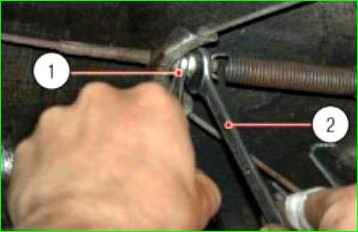
Holding the adjusting nut with wrench 1, loosen the lock nut with wrench 2

Holding the cable with pliers, tightening or loosening the adjusting nut, achieve a lever travel of 7–9 clicks.
Tighten the lock nut.
Pull the lever through several full strokes, then lower the lever to the stop.
Turn the rear wheels by hand. They should rotate smoothly, without jerking.
Otherwise, repair the parking brake drive or rear wheel brake mechanisms.





